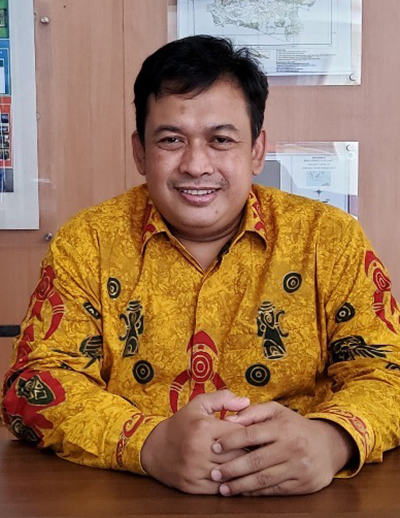Dr. M. Rokhis Khomarudin
2022 APRSAF Space Achievement Award
Research Professor,
Research Center for Remote Sensing,
Research Organization for Aeronautics and Space,
National Research and Innovation Agency (BRIN)

2022 APRSAF Space Achievement Award
Research Professor,
Research Center for Remote Sensing,
Research Organization for Aeronautics and Space,
National Research and Innovation Agency (BRIN)
I have been working at the Indonesian Space Agency LAPAN since 1999, where I am involved in remote sensing for the environment. Since then, I believe that space technology helps people to identify environmental problems and their changes. Interpreting remote sensing data obtained from satellite in the space is a challenge in itself. As we know, the world is facing environmental problems and changes that need to be monitored regularly to ensure that the changes do not endanger human life. This technology can help with that quickly, accurately and cost-effectively.
The most challenging of the research activities are data, knowledge sharing, and the collaboration. In remote sensing research, these three things are absolutely necessary to develop an accurate remote sensing model. To maintain the continuity of research, friends from different countries need to help each other and collaborate.
APRSAF Award is my second international award after the PECORA award under the International Charter for Space in Major Disasters. I received this award because of the good collaboration with colleagues involved in remote sensing for environmental issues. It is a source of pride for me that my research activities on environmental issues are starting to be recognized, especially within the APRSAF community.
Collaborations are necessary for successful research. Friends and colleagues are important for research collaboration. The key to success is to make some friends from global networks.